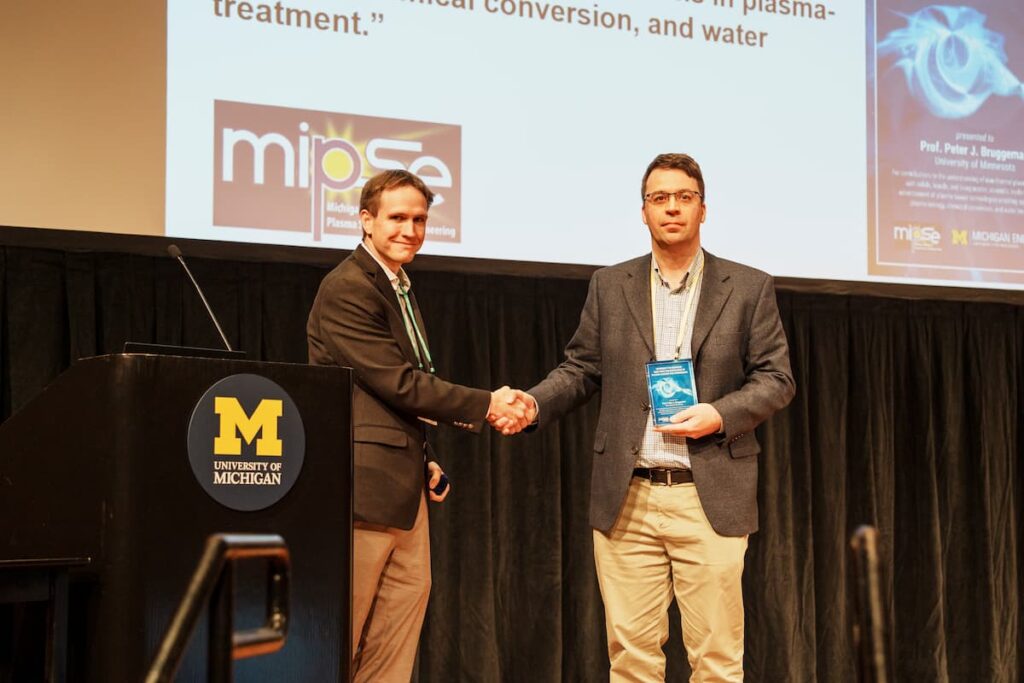
Exploring Cutting-Edge Research and Emerging Technologies in the World of Gaseous Electronics and Plasma Physics
Highlights from the 76th Gaseous Electronics Conference (GEC) 2023 hosted by the University of Michigan.

Highlights from the 76th Gaseous Electronics Conference (GEC) 2023 hosted by the University of Michigan.
The 76th Gaseous Electronics Conference (GEC), a prominent event in the field of plasma physics and gaseous electronics, was held last week at the University of Michigan. Scholars, researchers, and professionals from around the world gathered in Ann Arbor to discuss the latest advancements, research findings, and innovations in the field.
Areas of emphasis encompassed the science of plasma sources, diagnostics, modeling, plasma chemistry, basic phenomena, and atomic and molecular collision processes. The conference served as a platform for reporting on emerging areas of plasma-based technologies such as microelectronics, propulsion, biotechnology, plasma medicine, multiphase plasmas, environmental applications, and atmospheric-pressure plasma systems. The 2023 GEC maintained its legacy as a premier venue for advancing low-temperature plasma science and technology.
The conference hosted over 400 presenters from 28 countries who shared their insights into the current state and future direction of gaseous electronics research and shared their findings and advancements in various sub-fields. The Foundation Talk was given by NERS and ECE Professor Mark J. Kushner. Kushner is also the director of both the Michigan Institute for Plasma Science and Engineering (MIPSE) and the DOE Center for Plasma Interactions with Complex Interfaces (PICI). The title of his talk was “When Plasmas Meet Phase Boundaries”. It highlighted scientific advances associated with how plasmas interact with other states of matter like solids, liquids, organic tissues, and polymers, and described how these advances enable engineering applications, such as plasma medicine, functionalization of materials, and microelectronics fabrication.
The Women in Plasma Science Lunch supports the experiences and efforts of female researchers in science at all stages of their studies and careers. Prof. Amy Wendt, Associate Vice Chancellor for Research and Graduate Education, Professor of Electrical and Computer Engineering at the University of Wisconsin-Madison, and this year’s keynote speaker spoke about her own experience as a woman in plasma science, the evolution of the GEC community during her career, and invited a conversation with participants about the future of this research community.
The awards presentation took place on Thursday at The Henry Ford Museum of American Innovation, an internationally recognized cultural destination that brought the past forward by immersing visitors in the stories of ingenuity, resourcefulness, and innovation that helped shape America. The event began with networking and beverages at the Clocktower entrance, followed by a move into the innovation center for dinner and the award presentation.
The awards presented at the 2023 GEC conference highlighted the passion and impact of scientific professionals and organizations in plasma sources, diagnostics, and other areas of focus. The awards presented were:

